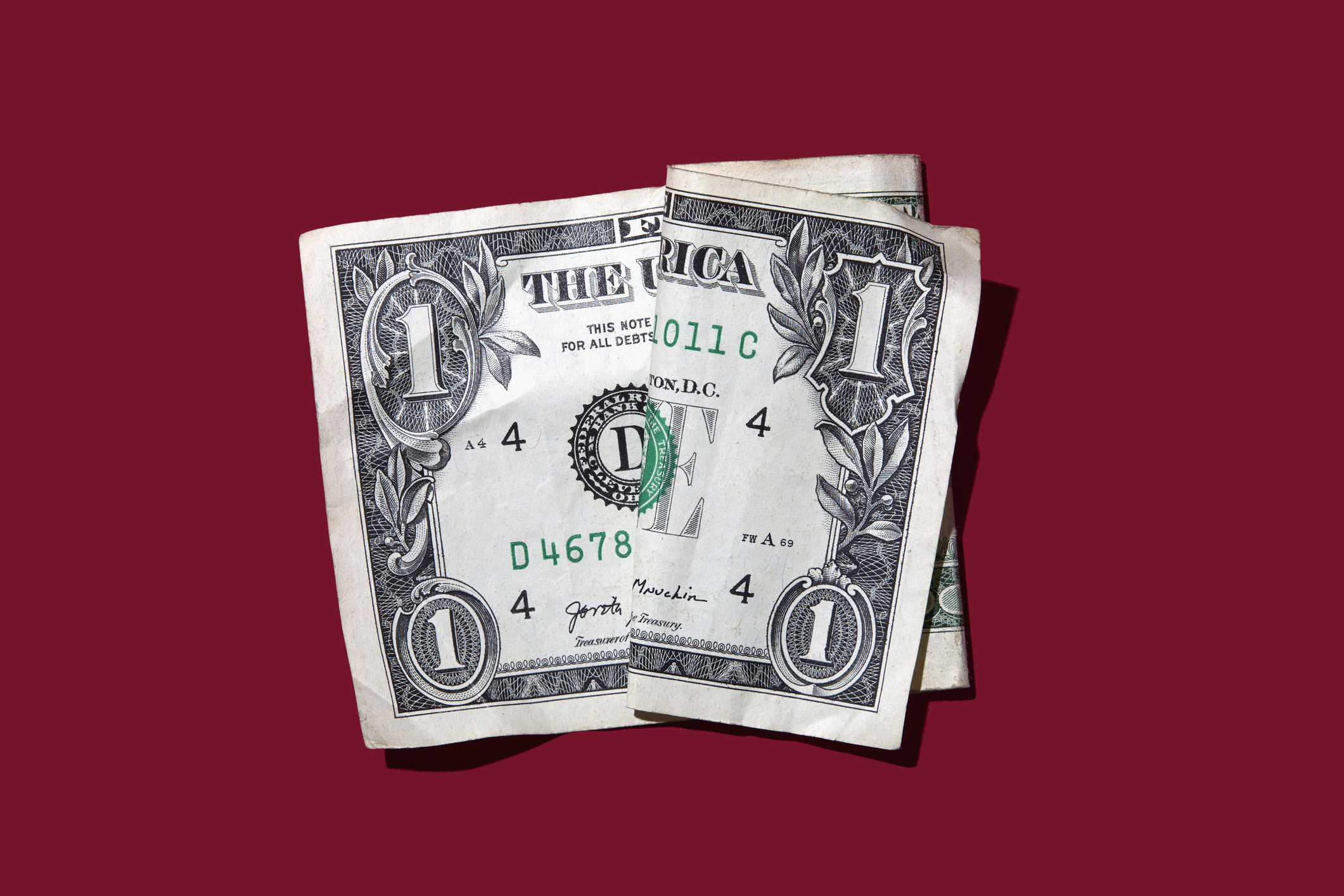9 States Without Income Tax in 2026
Your hard-earned money is safe from state income tax if you live in one of these states but watch out for other state and local taxes.


Profit and prosper with the best of Kiplinger's advice on investing, taxes, retirement, personal finance and much more. Delivered daily. Enter your email in the box and click Sign Me Up.
You are now subscribed
Your newsletter sign-up was successful
Want to add more newsletters?
No taxpayer wants to see their paycheck shrink due to income taxes, but luckily, some states don’t tax your income at all.
As of 2026, nine states do not levy a state income tax. That means less money is taken out of your hard-earned paycheck. If you are retired, no income tax also means no tax on your Social Security benefits, withdrawals from your IRA or 401(k) plan, or payouts from your pension.
For some people, these tax breaks can be an attractive incentive to relocate. However, states with no income tax often collect higher taxes elsewhere to make up for a revenue shortfall.
Here’s where you can expect to see higher taxes in a no-income-tax state.
No income tax doesn’t mean tax-free
Just because a state is income-tax-free, it doesn’t mean you’ll completely evade taxes.
- States without an income tax still need money to pay for roads, schools, and other infrastructure, so residents have to pay other taxes (e.g., sales, property, and estate taxes).
- And sometimes those other state taxes can be on the high end. For example, states with no income tax are often ranked among the places with the highest property tax rates in the country.
So, if you are thinking of moving to a state without an income tax, take note of some of the other taxes you will have to pay there or services that may be limited due to revenue shortfalls. Maybe the grass isn't greener on the other side.
Related: Are No Income Tax States Better to Move To?
That being said, let’s dive into the nine states without an income tax and how you’ll be taxed.
Average combined state and local sales tax values are accurate as of January 2025 and were compiled by the Tax Foundation. Overall tax ratings are from the 2025 State Competitive Index.

Alaska
Overall Rating for Taxes: Among the most tax-friendly in the U.S., ranking 4th overall on the Tax Foundation’s 2026 State Tax Competitive Index. (That's down one spot from 3rd in 2025).
Alaska ranks among the best states to live in if you want a break from high taxes. If you live in the Last Frontier, although chilly, you’ll benefit from no income taxes, and you get to live in one of five states with no state sales tax. That being said, localities can levy sales taxes, which can reach 7.85%. Higher rates are found in locations that lack a property tax. But, according to the Tax Foundation, the statewide average is only 1.82%.
Additionally, the state has no inheritance tax or estate tax. If you’re a homeowner, property taxes in Alaska are rather high; the effective property tax rate for an owner-occupied home is 1.06 to 1.07%.
As for gasoline costs, it’s also quite inexpensive compared to the rest of the country. Alaska has an 8.95 cents-per-gallon gas tax rate, which is the lowest in the nation, and levies a $2.00 excise tax per pack.
For more information, see the Alaska Tax Guide.

Florida
Overall Rating for Taxes: Florida’s tax system ranked 5th overall for the Tax Foundation’s 2026 State Tax Competitive Index.
Lots of taxpayers consider relocating to Florida to benefit from the state’s tax breaks. For one, you’ll get to keep more of your hard-earned money as it’s a no-income-tax state. That’s not all, your groceries and prescription drugs are also exempt from sales tax. There’s also no inheritance or estate tax.
Generally, when it comes to shopping, the Sunshine State imposes a middle-of-the-road sales tax rate compared to other states. As of 2026, you can expect to pay a 6% state sales tax. Localities can add as much as 1%, and the average combined rate is 7.00%, according to the Tax Foundation.
Here’s the catch: property taxes are a sore point for many Floridians. Property taxes sit at an average of 0.74% for an owner-occupied home in the Sunshine State. That alone motivated more than 66% of state voters to pass a ballot measure that aims to increase Florida property tax breaks, as reported by Kiplinger.
Separately, Florida has a 38.0 cents per gallon tax rate and a $1.339 cigarette excise tax rate.
For more information, see the Florida Tax Guide.

Nevada
Overall Rating for Taxes: Nevada’s tax system does not impose individual or corporate income taxes, but other taxes land its ranking in the 17th place for 2025 compared to all other states vetted by the Tax Foundation.
Nevada, like some of the states mentioned in our list, doesn’t impose an inheritance or estate tax. It’s also a no-income-tax state.
As for shopping, the Silver State does levy a 5.50% sales tax. Localities can add as much as 2%, and the average combined rate is 6.96%, according to the Tax Foundation. That's a pretty high combined rate. One new change: starting January 1, 2025, infant and adult diapers will be exempt from the sales tax.
As Kiplinger reported, the sales tax relief adds to a national trend of lowering the share of states that still tax diapers. What else is exempt from the sales tax?
- Groceries: Exempt
- Prescription Drugs: Exempt
As for homeowners, the Silver State levies a 0.47% to .49% effective property tax, which ranks it as one of the ten states with the lowest property taxes. If you’re commuting, Nevada levies a 23.81 cents per gallon gas tax rate and a $1.80 cigarette excise tax, which remains consistent with recent years.
Another positive change for Nevada residents this year will impact the unemployment insurance (UI) taxable wage base. The Silver State increased the UI taxable wage base on January 1, 2026, to $43,700 (up from $41,800 in 2025).
For more information, see the Nevada Tax Guide.

New Hampshire
Overall Rating for Taxes: Among the top ten tax-friendliest states in 2025, per Tax Foundation estimates.
New Hampshire is one of the best states in the nation when it comes to tax breaks. You won’t have to worry about income taxes, state or local sales taxes, or an inheritance and estate tax. At first glance, that sounds like a pretty solid deal. However, you’ll end up paying higher taxes elsewhere.
Where will you feel the pinch? Property taxes in New Hampshire are among the highest in the country at a 1.41% to 1.44% effective rate on owner-occupied homes. Heading into 2026, owners of mobile homes continue to voice concerns that their property taxes are disproportionately high compared to traditional homes due to how local assessments and land-use fees are calculated.
Another tax to watch out for is gas. If you’re commuting in The Granite State, you can expect to pay a 23.83 cents per gallon tax rate.
Major changes now in effect: As mentioned, New Hampshire doesn't tax earned income, and as of January 1, 2025, the state fully repealed the tax on interest and dividend income. The tax on interest and dividend income was originally meant to be phased out by 2027; however, HB 2, enacted in June 2023, sped up the phaseout by two years. As a result, New Hampshire is now strictly a no-individual-income-tax state.
For more information, see the New Hampshire Tax Guide.

South Dakota
Overall Rating for Taxes: South Dakota ranks as the second tax-friendliest state in the country in 2026 according to the Tax Foundation.
You won’t have to pay state income taxes, inheritance, or estate taxes in South Dakota. Another positive for folks in the Mount Rushmore State is that the sales tax is below average compared to the rest of the country.
You can expect to pay a 4.2% state sales tax (a rate currently set to expire in 2027), while localities can add as much as 2%, and the average combined rate is 6.11%, according to the Tax Foundation.
While groceries and clothing are taxable (despite recent legislative attempts to exempt them), there are some exemptions to the sales tax:
- Motor Vehicles: Exempt from ordinary sales tax, but taxable under a special 4% excise tax
- Prescription Drugs: Exempt
As for property taxes, South Dakota imposes a 1.01% effective rate. That's slightly below the national average.
Catching a ride? Drivers in the Mount Rushmore State can expect a 30 cents per gallon gas tax rate.
For more information, see the South Dakota Tax Guide.

Tennessee
Overall Rating for Taxes: Tennessee ranks among the top 10 states that are the most tax-friendly in 2025.
Tennessee does not levy income tax, estate, or inheritance taxes. However, what makes it one of the most tax-friendly states is its below-average property tax rate. At just 0.48%, property taxes are nearly 50% lower compared to other states featured on this list. That's especially true in the ten most affordable places to live in Tennessee.
Where does Tennessee recoup some state and local revenue? It’s higher than average sales tax. The Volunteer State has a 7% state levy. There's also an additional state tax of 2.75% on sales of single items that applies to the portion of the sales price from $1,600 to $3,200. Localities can add up to 2.55%, with an average combined state and local rate of 9.55%, according to the Tax Foundation.
That's the second-highest combined rate in the nation. Local taxes are limited, though: Only the first $1,600 of any single item is taxable.
- Groceries: Taxable (4% state rate; additional local taxes may apply)
- Clothing: Taxable
- Motor Vehicles: Taxable (7% basic rate, plus 2.75% state tax on sales price between $1,600 and $3,200; additional local taxes may also apply)
- Prescription Drugs: Exempt
As Kiplinger has reported, the Tennessee Works Act continues to give residents and businesses a break from certain taxes. While the three-month grocery tax holiday has concluded, Tennessee still hosts its annual back-to-school sales tax holiday in late July.
Additionally, small businesses benefit from ongoing tax relief and a transition to a single-sales-factor apportionment through 2026.
As for gas tax, in Tennessee, you’ll pay 26 cents per gallon of gas — up from 24.4 cents in previous years as part of the state’s scheduled increases. It’s not exactly the lowest tax rate, but not the highest either.
There is one big change that took effect recently: hydrogen gas is now exempt from the sales and use tax. However, it is subject to the alternative fuels tax of 21 cents per gallon, according to the Tax Foundation. Hydrogen gas was added to the state’s alternative fuels law as part of SB 2307, which became fully operational on January 1, 2025.
For more information, see the Tennessee Tax Guide.

Texas
Overall Rating for Taxes: Among the top seven tax-friendliest states in 2026, per Tax Foundation estimates.
Like other states featured on this list, Texas doesn’t impose an income tax, inheritance, or estate tax.
Starting with the good: significant tax changes continue to impact schools this year. As of January 1, 2026, the state has further reduced the maximum compressed tax rate (MCR) for school districts by over 3 cents, shifting more of the school funding burden from local homeowners to the state. The Texas Education Agency has also updated the maximum compression levy rate for each district to reflect these new 2026-2027 targets.
For commuters, Texas only levies a tax rate of 20 cents per gallon of gasoline—that’s among the lowest state gas taxes in the U.S.
Now, the not-so-good. Texas levies a 6.25% state sales tax. Localities can add up to 2%, with an average combined rate of 8.20%, according to the Tax Foundation. Texas' combined rate is well above the U.S. average. While groceries and prescription drugs are exempt from sales tax, motor vehicles and clothing are not.
You won’t catch a break with property taxes, either.
The average property tax rate on an owner-occupied home is 1.36% to 1.74% (depending on local exemptions), which is much higher compared to the rest of the country.
However, for the 2026 tax year, the school district homestead exemption has been increased to $110,000, providing some relief against rising home valuations.
For more information, see the Texas Tax Guide.

Washington
Overall Rating for Taxes: Ranks among the ten least tax-friendly states in 2026, tumbling to 45th overall on the Tax Foundation’s Index.
While Washington doesn’t levy a traditional income tax, the state recently increased its capital gains tax to a tiered system. As of 2026, a 7% tax applies to the first $1 million of long-term capital gains, while a 9.9% rate applies to gains exceeding $1 million. The standard deduction has also been adjusted for inflation to $278,000.
Other taxes may complicate the cost of living for residents of the Evergreen State. Washington imposes a 6.5% state sales tax. Municipalities can add up to 4.1%, with the average combined rate at 9.51%, according to the Tax Foundation. Washington's combined rate is the third-highest in the nation. While groceries and prescription drugs are exempt from sales tax, clothing and motor vehicles are not.
Property Taxes: Do you have a property that generates or stores renewable energy? If you do, the new personal property tax exemption for the state portion of the tax is now in full effect for qualifying facilities. Overall, the average Washington resident can expect to pay 0.75% in property taxes.
Inheritance and Estate Taxes: Washington does not have an inheritance tax, but it does levy the nation’s highest-rate estate tax.
For 2026, estates valued over $3 million (the new exemption threshold) must pay estate taxes, with a top rate that has recently increased to 35%. The state continues to offer a deduction for family-owned businesses, though the worldwide gross revenue limit for this deduction has risen to $11.095 million due to inflation.
As for gas taxes, Washington drivers pay a tax rate of 59.04 cents per gallon of gas—the third-highest in the U.S. following a 6-cent increase that took effect July 1, 2025.
For more information, see the Washington State Tax Guide.

Wyoming
Overall Rating for Taxes: Wyoming ranks as the 1st overall most tax-friendly state in the United States in 2026, according to the Tax Foundation.
Wyoming is the best state in the country when it comes to tax-friendliness. With no income tax, estate, or inheritance taxes, its residents also benefit from low taxes across the board.
- The Cowboy State imposes a 4% state sales tax. Municipalities can add up to 2% to that, with an average combined rate of 5.56%, according to the Tax Foundation.
- The combined rate remains one of the lowest sales tax rates in the nation.
- Groceries and prescription drugs are exempt from the sales tax, but motor vehicles and clothes are not.
If you’re commuting, gas taxes are quite low as well. Wyoming has a 24-cent per-gallon gas tax rate, which is the current rate following recent legislative adjustments.
There are several property tax relief measures benefiting homeowners this year. First, a new 25% exemption on the first $1 million of a primary residence's value is now in effect.
Additionally, if you’ve paid Wyoming property taxes for at least 25 years, you may be in luck: as of January 1, 2025, homeowners or spouses who are 65 years old or older are eligible for a 50% property tax exemption on their primary residence. Military members who are residents of Wyoming may also qualify.
- The exemption is temporary and set to sunset on July 1, 2027, however, a separate bill doubles the exemption for certain veterans (from $3,000 to $6,000 of the assessed value of a home).
- Overall, homeowners pay an average 0.55% effective property tax rate in the state.
For more information, see the Wyoming Tax Guide.
Profit and prosper with the best of Kiplinger's advice on investing, taxes, retirement, personal finance and much more. Delivered daily. Enter your email in the box and click Sign Me Up.

Gabriella Cruz-Martínez is a finance journalist with 8 years of experience covering consumer debt, economic policy, and tax.
Gabriella’s work has also appeared in Yahoo Finance, Money Magazine, The Hyde Park Herald, and the Journal Gazette & Times-Courier.
As a reporter and journalist, she enjoys writing stories that empower people from diverse backgrounds about their finances, no matter their stage in life.
-
 4 High-End Experiences Worth the Splurge After 50
4 High-End Experiences Worth the Splurge After 50These curated date ideas provide the perfect backdrop for couples ready to enjoy the very best that the world has to offer.
-
 Health Care Stocks Have Sagged. Can You Bet on a Recovery?
Health Care Stocks Have Sagged. Can You Bet on a Recovery?The flagging health care sector has perked up a bit lately. Is it time to invest?
-
 Costco's Auto Program: Can Membership Pricing Really Save You Money on a Car?
Costco's Auto Program: Can Membership Pricing Really Save You Money on a Car?Costco's Auto Program can simplify the car-buying process with prearranged pricing and member perks. Here's what to know before you use it.
-
 2026 Tax Refund Delays: 5 States Where Your Money Is Stuck
2026 Tax Refund Delays: 5 States Where Your Money Is StuckState Tax From New York to Oregon, your state income tax refund could be delayed for weeks. Here's what to know.
-
 How One Extra Dollar of Income Can Cost You Thousands in Retirement
How One Extra Dollar of Income Can Cost You Thousands in RetirementRetirement Even modest changes in retirement income can raise Medicare premiums under IRMAA. Here’s how a small increase can affect your retirement costs.
-
 First the Penny, Now the Nickel? The New Math Behind Your Sales Tax and Total
First the Penny, Now the Nickel? The New Math Behind Your Sales Tax and TotalRounding Tax A new era of "Swedish rounding" hits U.S. registers soon. Learn why the nickel might be on the chopping block, and how to save money by choosing the right way to pay.
-
 Trump Tariffs Supreme Court Ruling: What's Next for Consumers and Retailers
Trump Tariffs Supreme Court Ruling: What's Next for Consumers and RetailersTax Law This landmark decision will reshape U.S. trade policy and could define the outer boundaries of presidential economic power for years to come.
-
 Over 65? Here's What the New $6K Senior Tax Deduction Means for Medicare IRMAA
Over 65? Here's What the New $6K Senior Tax Deduction Means for Medicare IRMAATax Breaks A new tax deduction for people over age 65 has some thinking about Medicare premiums and MAGI strategy.
-
 U.S. Congress to End Emergency Tax Bill Over $6,000 Senior Deduction and Tip, Overtime Tax Breaks in D.C.
U.S. Congress to End Emergency Tax Bill Over $6,000 Senior Deduction and Tip, Overtime Tax Breaks in D.C.Tax Law Here's how taxpayers can amend their already-filed income tax returns amid a potentially looming legal battle on Capitol Hill.
-
 How to Open Your Kid's $1,000 Trump Account
How to Open Your Kid's $1,000 Trump AccountTax Breaks Filing income taxes in 2026? You won't want to miss Form 4547 to claim a $1,000 Trump Account for your child.
-
 In Arkansas and Illinois, Groceries Just Got Cheaper, But Not By Much
In Arkansas and Illinois, Groceries Just Got Cheaper, But Not By MuchFood Prices Arkansas and Illinois are the most recent states to repeal sales tax on groceries. Will it really help shoppers with their food bills?
